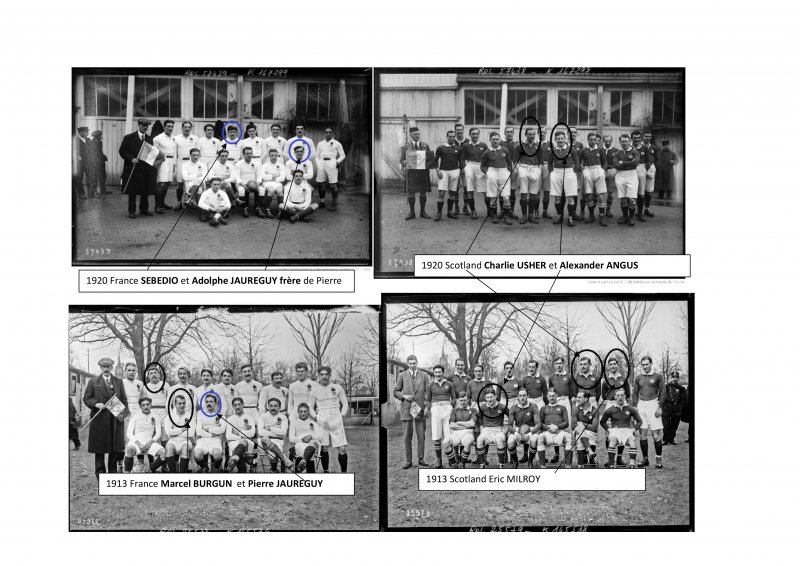The century of rugby game of the one-eyed ’men , only 3 survivors of the last confrontation France - Scotland of 1913 survived.
6 February 2020
Le match des Borgnes, only 3 survivors of the last confrontation France - Scotland of 1913 survived.
France, scotland and the tournament
On January 1, 1910, the French rugby team played the first game of its history in the 5 Nations Tournament. It was against Wales who won the 43-13 victory. On January 22, 1910, France playes its first match against Scotland on the score of 16 to 15 On January 2, 1911, France won its first match of the tournament. It’s against Scotland on the score of 27-0 for Scotland. In the 1913 Tournament, on January 1 in Paris, at the Parc des Princes and in front of 25,000 spectators, the France-Scotland meeting, which saw the French defeat on the score of 3 to 21, degenerated into a collective fight, so the Scottish leaders refused to play against France in 1914. In the 1913, on January 1 in Paris, it’s the only game played by the french Marcel Burgun and the scottish Eric Milroy,their name is engraved on the Auld Alliance trophy un memory of all rugbymen died in WW1.
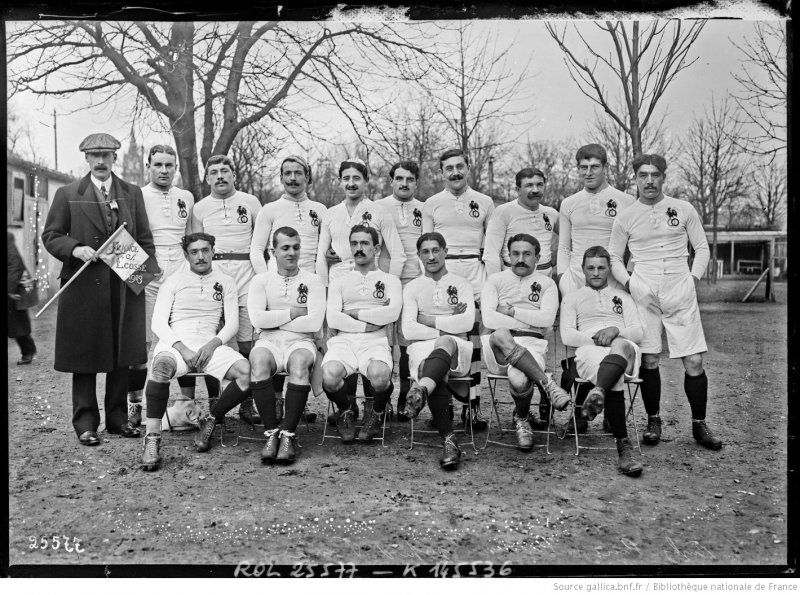
Equipe de France 1913, source Bnf.fr
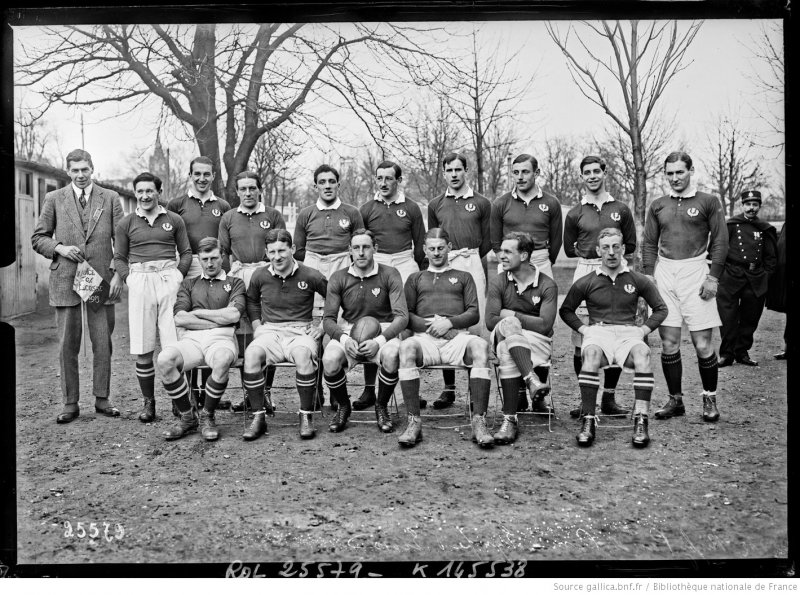
Equipe d’Ecosse 1913, source Bnf.fr
The conséquences of the war
The First World War will interrupt major international sporting events including the 5 Nations Tournament. Engaged in the particularly deadly battles of this war, many champions will not return from the conflict and more than any other sport, rugby is cruelly affected by this slaughter. All national teams are decimated. 125 international rugbymen from all countries will remain forever on the battlefields. Others, seriously injured, will return severely disabled.
Sport at the service of soldiers
But, paradoxically, sport never ceased to be practiced during those 1561 days of mass death. Between fights, in order to occupy the long waiting times, soldiers multiply joint and combined sports meetings. To re-educate themselves, the injured also spontaneously discover the benefits of sport and pose, without knowing it, the first bases of the disabled sport.
1920, The resumption of the Tournament
Once peace is restored, wounds must be healed. Sport will make its contribution. The FFR, created on 19 May 1919, is firmly structured and, at the international level, the tournament is reborn. The spell made the first match a France-Scotland scheduled for Paris on January 1, 1920. What about the difference between Scotland and France before the war? In the meantime, war and its tragedies have put the causes of discord into perspective, rancour has been eased, the time has come for reconciliation and reconstruction. United in combat, we are ready to fight loyally on the sports fields..
Le match des Borgnes
Of the 125 international players left in the mud of the trenches, there are 30 Scots and 22 French. To make up the teams, on both sides, we select new players (11 French and 8 on the Scottish side), the majority of whom are survivors of the Great War. Among them some lost an eye in fights. How much? The majority of historians agree on the number of five players, three Scottish Andrew WEMYSS, Arthur Douglas LAING (Podger) and John HUME and two French Robert THIERRY and Frédéric LUBIN-LEBRÈRE. But whatever the exact number, the fact is there! What we must remember is that a century later, these men, survivors of hell, show us an extraordinary example of courage and will and if this meeting is won by Scotland 5 - 0, it remains forever in the history and in the heart of all under the emblematic name of match of the Borgnes. .
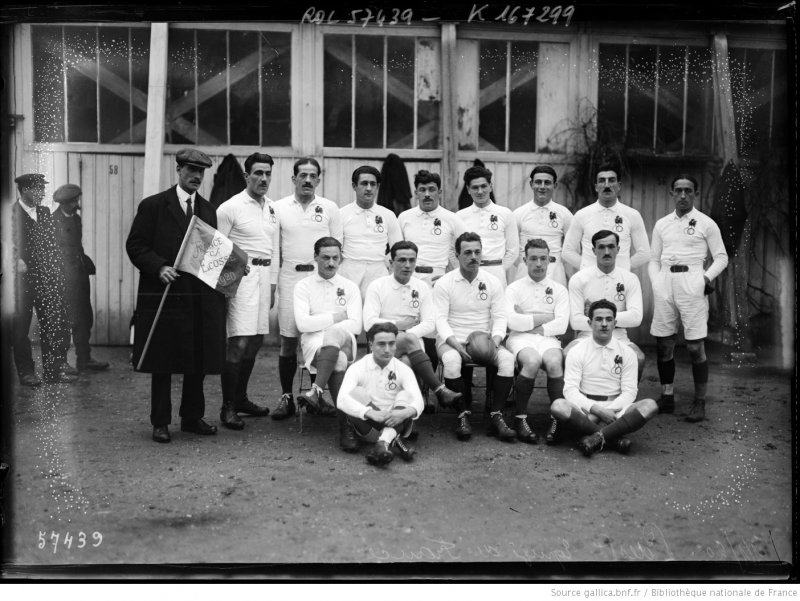
Equipe de France en 1920, source Bnf.fr.
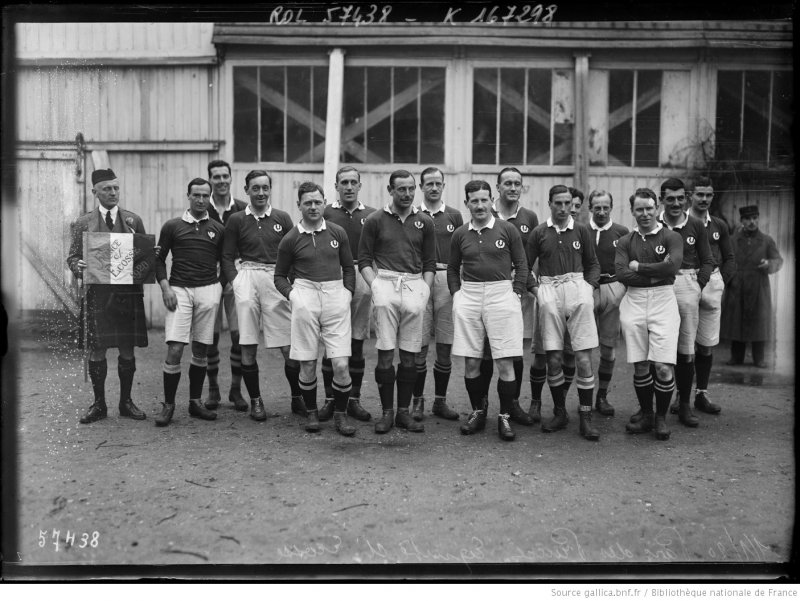
Equipe d’Ecosse en 1920, source Bnf.fr.
Note that three players will jointly participate in the 1913 and 1920 matches, the Scottish Alexander ANGUS and Charlie USHER (whose Eric Milroy was the teammate before succumbing to the front in Deville wood in 1916) as well as the French Jean SÉBÉDIO (teammate of Marcel Burgun before his plane crashed on the Eastern Front in 1916).
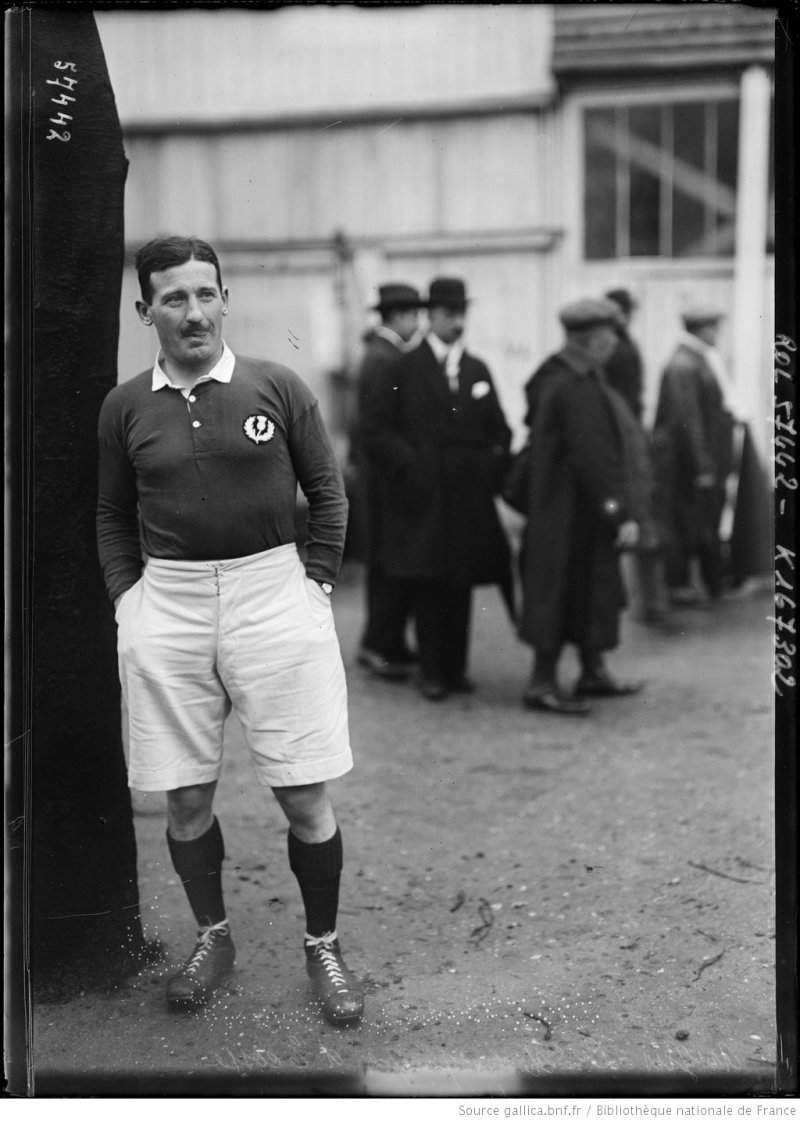
Alexander Angus, capitaine survivant de la 1ère Guerre Mondiale. Source Bnf.fr
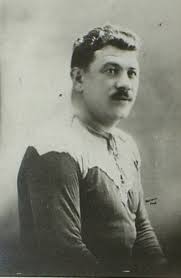
Scotland - France
A France-Scotland rugby encounter always has a fragrance of friendship and shared esteem that is by no means fortuitous. History has built this bond between these two nations. This relationship goes far beyond the plan of the only result, it is fraternal. It symbolizes the ultimate goal of sport, which remains an excellent way to surpass oneself personally, to know one another, to understand the other end of living together in respect and peace.
Flower of Scotland 30 years already, for the 3rd edition of the Auld Alliance Trophy which will be played on March 8, 2020 in Murrayfield at 3.pm
2020 a truly special year for the two nations with fraternal ties.
Sunday 8 March 2020, at BT Murrayfield Stadium at 4pm (local time) will take place the 90th game (97th if we count the 4 tests match and the 3 matches played in the World Cup) between these two nations whose winner will win the 3rd edition of the AULD ALLIANCE TROPHY (1 win each). This trophy celebrates both the «Old Alliance», dating from 1295 and the memory of rugbymen who died during the First World War whose names Eric Milroy and Marcel Burgun are associated. 2020 will also celebrate the centenary of the famous «match des Borgnes». It is without doubt that the Scottish Rugby Union founded in 1873 will take the opportunity to celebrate the 30th anniversary of the anthem: « Flower of Scotland » whose echoes of the stands of the stadium could reach the esplanade of Edinburgh Castle.
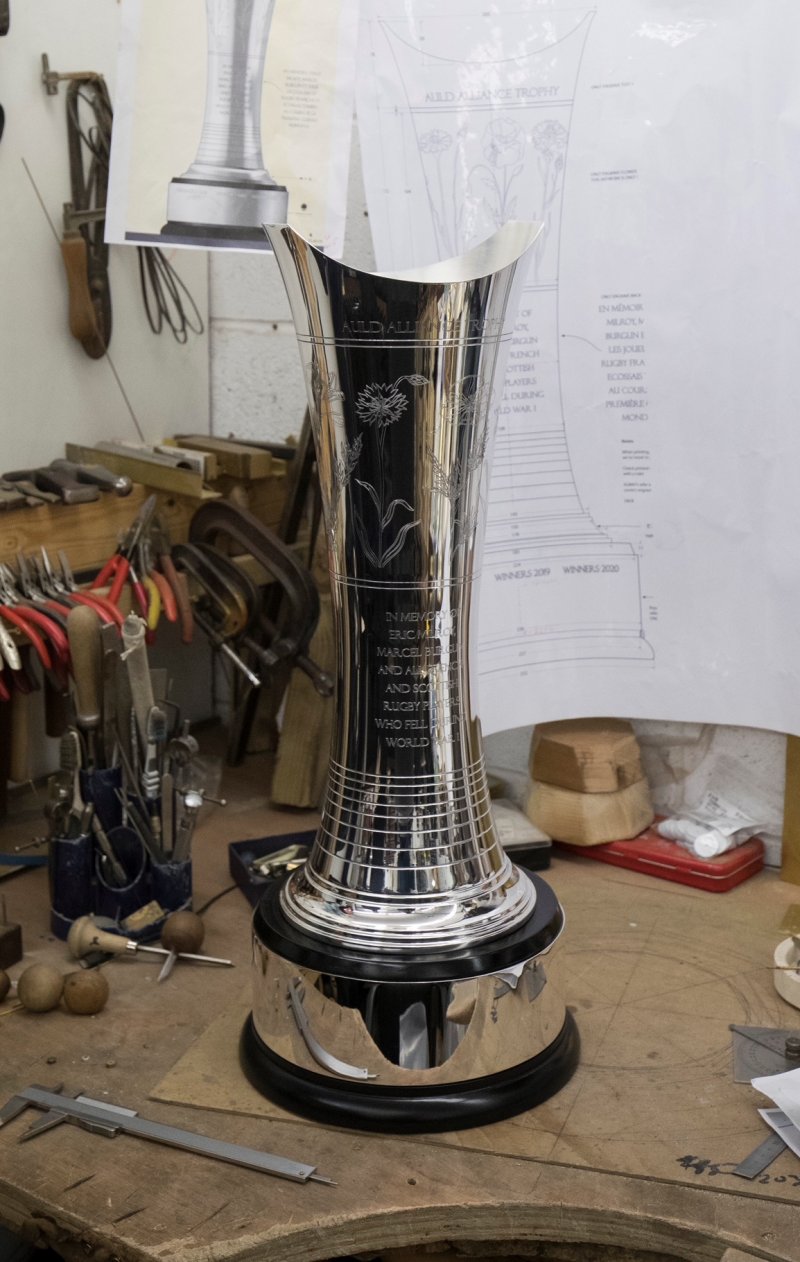
George Watson’s College in Edinburgh
The Milroy’s trophy centennial at George Watson’s College is this year. This trophy donated by the mother of Eric MILROY is intended to honour the memory of the young rugbymen of the school who died in 1914-1918. Among the Wastonians who became international before the war were James PEARSON and James Young MILNE-HENDERSON. This trophy has rewarded the school’s top scorer for 100 years. The Hastings brothers, Scott and Gavin won it several times at the time before they became the XV du Chardon internationals we know. Since then many Watsonians have become international.
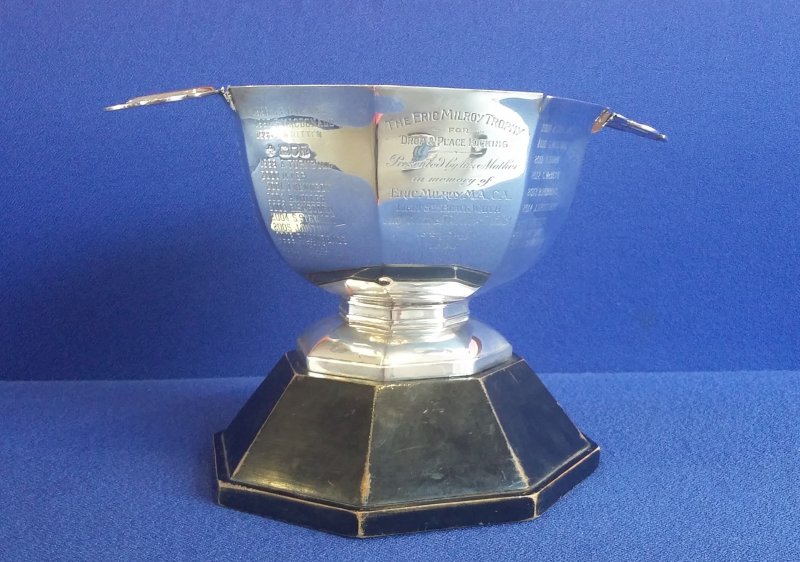
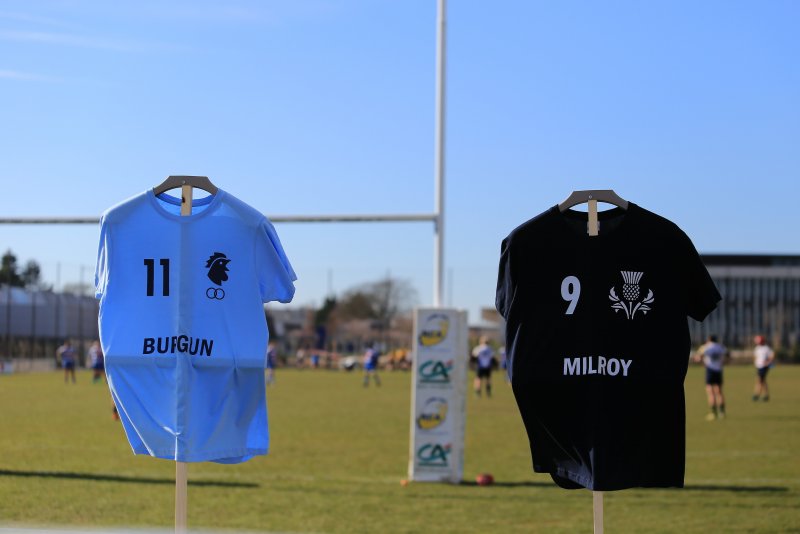
The figures are as follows :
In 1920, there were 7 Scottish international survivors who had met in the framework of the V nations before the world war I, among them are: Alexander ANGUS, 18 caps, 1st selection against Wales in 1909 and played France in 1910, 1912, 1913 and 1920; Jenny HUME, 7 caps, played France in its 1st selection in 1912, then in 1920 and in 1922; Charlie USHER, 16 selections also played France in its 1st selection in 1912, then in 1920 and in 1922; Andrew HAMILTON, 2 caps, 1st selection against Wales in 1914 and last selection against France in 1920; Arthur Douglas LAING (Podger), 9 caps, 1st selection in 1914 against Wales, played France in 1920 and 1921; Allen SLOAN, 7 caps, 1st match in 1914 against France Wales 1er match en 1914 contre le Pays de Galles, then against France in 1920 and 1921 and finally Jock WEMYSS, 7 caps and played France in 1920 and 1922.
4 French internationals who knew the V pre-war nations survived the 1914-1918 conflict : Jean SÉBÉDIO, 9 caps, played Scotland in 1913 during its first selection, then in 1920, 1922 and 1923; Philippe STRUXIANO, 7 caps whose 1st against Wales in 1913, played Scotland only once in 1920; René LASSERRE, 15 caps including the 1st against Ireland in 1914 and against Scotland in 1920, 1921, 1922 and 1924; Marcel-Frédéric LUBIN-LEBRÈRE, 15 caps including the 1st against Ireland in 1914, played 3 times against Scotland in 1920, 1921 and 1922.
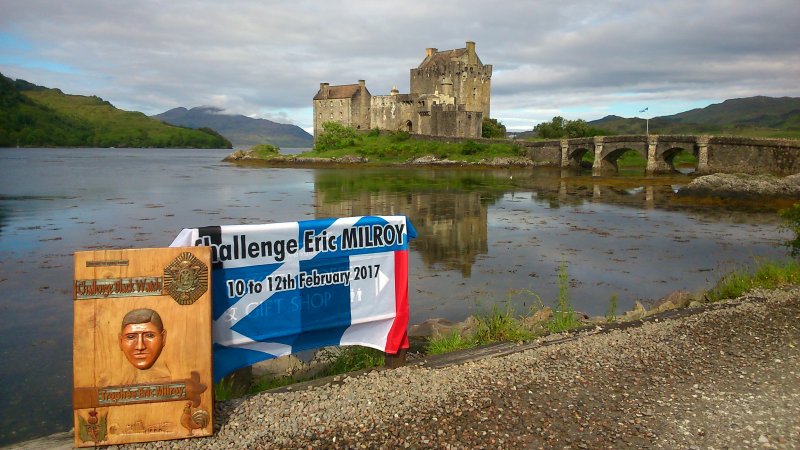
January 1, 1920, for 11 French internationals it’s the first match. They are Eugene BILLAC, Aimé CASSAYET-ARMAGNAC, André CHILO, René CRABOS, Adolphe JAUREGUY, Pierre’s brother who played against Scotland in 1913, Joseph LAURENT, Robert MARCHAND, Pierre PONS, Louis PUECH, Paul SERRE and Robert THIERRY. On the Scottish side, 8 new players are appearing : Gerard CROLE, Denoon DUNCAN, Ernest FAHMY, Bob GALLIE, Finlay KENNEDY, Monty MURRAY, George PATTULLO and George THOM.
« Le match des borgnes, France-Scotland rugby encounter that has not yet revealed all its secrets ». Michel MERCKEL & Patrick CAUBLOT Mémoire de Rugby Events.
Vive l’Ecosse et Vive la France.
The 3 Survivors of 1913 who played in 1920, miraculous World War I.
Alexander ANGUS, Charlie USHER (Ecosse) et ean SÉBÉDIO (France)
